Academics
| Prof Paul Curzon is a Professor of Computer Science at Queen Mary University of London. He was a member of the Royal Society Education Computing Working Group and a member of the national Computing at School Board.
He runs cs4fn / Computer Science for Fun through which he has been enthusing school students about interdisciplinary computer science worldwide for over 10 years. He is QMUL PI on the Greater London Assembly TechPathways project supporting London teachers, and also co-Director of Teaching London Computing developing inspiring activities for computing teachers to use in class. He is a UK National Teaching Fellow in recognition of his excellence in teaching and outreach. His education related research interests include the effectiveness of unplugged approaches to teaching computing, ways to teach computational thinking skills including in interdisciplinary contexts, how to support creativity and ways to inspire and enthuse students about computing and STEM more widely. Contact |
 |
| Dr Antonios Kaniadakis is an expert in the social study of digital innovation. He is the Head of the IT Management Teaching Group and Director of two interdisciplinary programmes combining Computer Science with Management and interpersonal skills. In the School of EECS he is responsible for several initiatives targeting professional and employability skills education, as well as supporting students’ transition to University. This includes the leadership of a major research project, Transforming Transitions, funded by the Office for Students. Antonios is a Fellow of the Higher Education Academy. Contact | 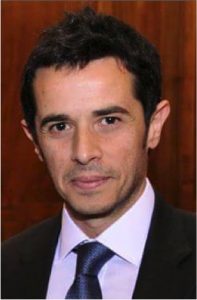 |
| Prof. Peter W. McOwan is Executive Dean for Public Engagement & Student Enterprise and a Professor of Computer Science at Queen Mary University of London.A founder member of CAS, he was elected a National Teaching Fellow by the HEA in 2008 and was awarded the 2011 IET Mountbatten Medal for his work in promoting computer science. He cofounded cs4fn / Computer Science for Fun. Contact |  |
| Dr Marie-Luce Bourguet is a senior lecturer in computer science in the school of EECS at Queen Mary, and a senior fellow of the higher education academy. She has research interests in the use of social robots, real and virtual, in education and works in partnership with the GV Robotics lab at the Tokyo University of Agriculture and Technology in Japan. She has also worked on the use of technology to foster bilingualism in young children. She leads a 4-year transnational undergraduate programme on multimedia, one of the four joint programmes between QMUL and the Beijing University of Posts and Telecommunications, in China. Contact | 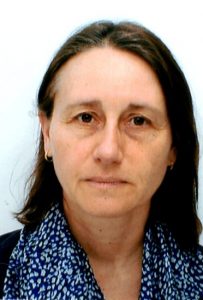 |
| Dr William Marsh is a Senior Lecturer in EECS. He has spoken regularly in schools and now jointly leads ‘Teaching London Computing’, developing CPD for teachers delivering the new GCSE/A-level CS curricula. He leads the Computer Science undergraduate placement module introduced in 2014/15 and is EECS’s Director of Communication and Recruitment. Contact | 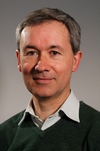 |
| Dr Usman Naeem has research interests in Gamification in education; Student engagement and experience in final year projects; Mobile sensing for recognising factors that impact students learning experience; Student staff partnerships Contact | 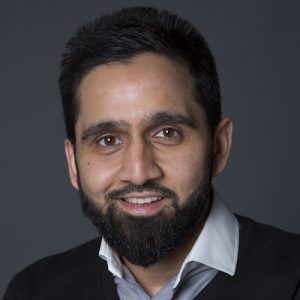 |
|
Dr Ana Cabral works at Queen Mary University of London as a Learning Development Advisor in the Learning Development team. She is involved in projects about the role of writing in learning and teaching in engineering and computer science. Her research interests include teaching and learning enhancement and academic development. Ana holds a PhD in Education (topic: Reading, Comprehension and Writing in Higher Education and Academic Success, 2003). She has teaching experience in secondary school education (languages) and more than 12 years of experience teaching in Higher Education (Research Methodologies and Education). She has been involved in many research and intervention projects related to interconnected areas: study skills, Higher Education pedagogy, linking teaching and research, educational research quality, and academic retention and success. She has also designed and delivered many support workshops for students and published study guides about learning in higher education (academic writing and study skills). Ana has also been working as a Research Fellow (University of Greenwich, since 2014) supporting a series of CPD modules involving primary/ secondary school teachers undertaking practitioner research. This experience has led to the development of a research project (TasR: Teachers as Researchers) and to several presentations and publications about reflective practice and professional development. |
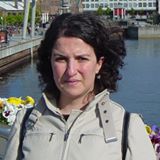 |
| Dr Paulo Oliva is a Reader in EECS. He is also the Director of Outreach, and has spoken regularly in schools. He currently leads QMUL’s collaboration with the Institute of Coding with responsibility for the Theme of Educating the Educators. Contact |
| Jane Reid is a Senior Lecturer in EECS. Her education related research interests lie in distance learning. Contact |
Researchers and PhD Students
| Mark Dorling is a PhD student. His research concerns exploring the use of concept maps in computing education. He is currently studying its effectiveness in teaching computer concepts to trainee teachers. Contact |
| Jane Waite is a PhD student and also project manager for the TechPathways project. Her research interests are based around Education, Computational Thinking and Programming. She is particularly interested in understanding what ‘abstraction’ means, how we already teach it, how this might change to improve young children’s skills in this area and what progression looks like. She is also very interested in how we teach pupils to program and the role of tinkering to support understanding of programming constructs and how this then tips into purposeful programming. Also how pupils create their design/algorithm and how they abstract to create that design/algorithm. This then leads to debugging and what the difference might be between strategies for debugging projects with a design and those without, i.e that evolved from tinkering. Contact |
| Jorge del Bosque is a PhD Student under the Media & Arts Technology CDT and a Teaching Fellow at EECS. His research entails Spoken Dialogue Systems, Human-Computer Interaction and Computational Linguistics. He is investigating the use of common ground for tailored explanations in Voice User Interfaces. He is a technology entrepreneur, founder of three software-based startups. Jorge designed and commercially exploited a Learning Management System (LMS/LCMS) to more than 30 international large corporations and co-authored more than 100 online corporate training courses. |  |
Administrative Staff
| Jo Brodie is the Public Engagement Co-ordinator for CS4FN and the Project Manager for Teaching London Computing (TLC). She has overall responsibility for community engagement on TLC as well as keeping the wolves from the admin door and gets 20,000+ copies of CS4FN magazine to over 2,000 UK school subscribers. Jo also runs psci-com, the popular (over 4,400 subscribers worldwide) mailing list for those working in science communication and public engagement. She has a couple of mildly popular blogs – Scicommjobs details jobs in science communication and How to do Various Techy Things is a ‘how to’ blog for people who use computers but aren’t necessarily confident in doing so.
Previously she was Public Engagement Co-ordinator for CHI+MED (the Computer-Human Interaction for Medical Devices project) an EPSRC-funded research project looking at making medical devices safer. Before that she was (Senior) Science Information Officer at Diabetes UK where she provided plain English summaries of diabetes research and statistical information as well as answering scientific enquiries from members of the public and colleagues. She is enthusiastic about people having access to the information they need in a format that makes sense. Contact |
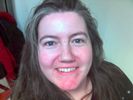 |
Past members
| Nicola Plant is a Research Assistant for Teaching London Computing where she is evaluating the impact of the programme for London computing teachers. Nicola is interested in developing teaching resources and applications to inspire and engage students with new technologies. Nicola is also a movement artist, coder and researcher currently completing a PhD in human movement, expression and intersubjectivity. Specialising in motion capture, she makes movement-based interactive installations and experiences, her work has been presented at exhibitions and conferences worldwide. Nicola has over 6+ years of experience in peer-to-peer computing teaching and leading creative coding workshops. Contact |  |
| Margaret Derrington began teaching in 1994 using computers and programming to teach Mathematics, and gradually moving sideways into teaching ICT and computer science. After some years teaching in various London schools and serving on the boards of ACITT, NAACE and the SSAT ICT expert panel, she spent six years training new ICT and computing teachers at King’s College London. Research interests include collaborative and task based learning and the use of the internet and virtual reality to teach languages. She has spent much of the last three years training ICT teachers to teach Computing. Contact |  |
| Pollie Barden is a human computer interaction researcher, game designer and technologist. Her work focuses on engaging and empowering users of all abilities with technology. She has over ten years of experience in designing, developing and project managing digital experiences that range from web/mobile based platforms, physical computing to pervasive games. Pollie continues to present her research, game and art work at conferences and exhibitions across the globe. Her research and art work can also be found in a variety of publications. As an educator, Pollie teaches physical computing, game design and graphic design in both workshops and universities in the U.S. and U.K. She is a co-found member of G.Hack, a collective of female researchers within the School of Electronic Engineering and Computer Science at Queen Mary, University of London. The group is focused on sharing knowledge and developing interactive media projects. She earned a masters in Interactive Telecommunication Program at New York University, NY, US. Pollie is currently based in London,UK where she is pursuing a PhD in Media Arts and Technology at Queen Mary University of London (QMUL). Contact |  |
| Chrystie Myketiak was a Postdoctoral Research Fellow on CHI+MED, an EPSRC-funded research project that improves the safety of interactive medical devices, and a Visiting Lecturer in Linguistics, where she lectures sociolinguistics modules. Chrystie holds a BA Honours in Sociology and Women’s Studies from the University of Regina, an MA in Sociology from Dalhousie University, and a PhD from the University of London. Contact |